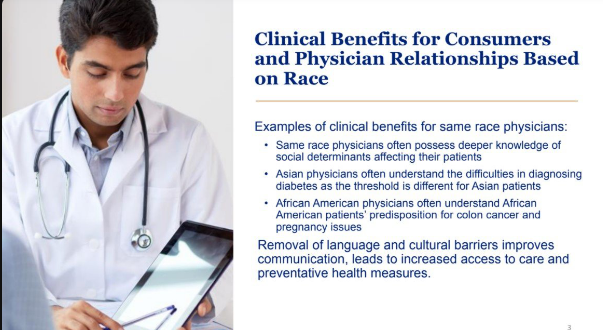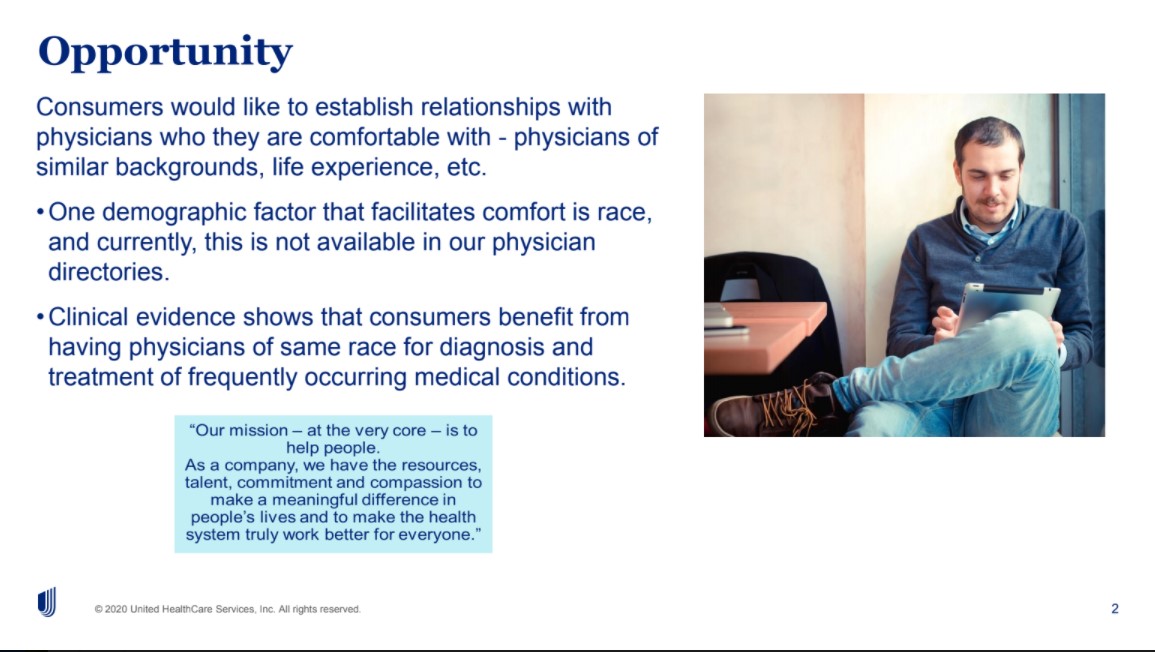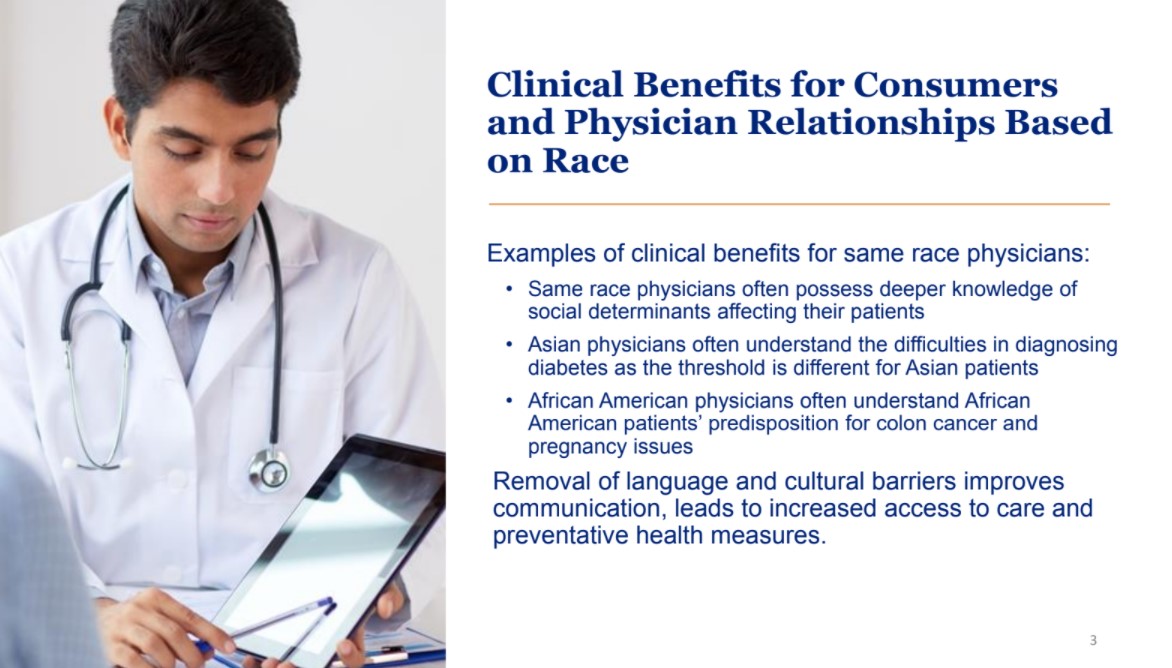
A presentation from the nation’s largest health insurance company encourages matching doctors and patients based on their race despite finding discomfort with the idea in company surveys.
After the title slide, the December 2020 UnitedHealthcare presentation presents as an “opportunity” the “problem” that currently doctors and patients do not segregate enough based on race, and claims benefits of doing so.
“Consumers would like to establish relationships with physicians who they are comfortable with -physicians of similar backgrounds, life experience, etc.,” the second slide in the document says. “One demographic factor that facilitates comfort is race, and currently, this is not available in our physician directories. Clinical evidence shows that consumers benefit from having physicians of same race for diagnosis and treatment of frequently occurring medical conditions.”

The presentation goes on to suggest having doctors add racial information to their in-network directory profiles to help potential patients pick them based on skin color instead of their specialty, location, quality of care, or other non-racist factors. It claims several “clinical benefits for consumers and physician relationships based on race,” including better “communication,” “access to care,” and “preventative health measures.” 
The title slide says the presentation was prepared by UnitedHealth Vice President Mike Kane, whom a LinkedIn profile indicates has worked at the company for nearly seven years.
It also claims, based on a “2020 UHC Directory Survey” of doctors and patients, that 68 percent of doctors surveyed were willing to share their race in a physician directory and 46 percent of consumers were “likely to use race in selection” of a health-care provider.
Yet the survey results also found significant discomfort with the idea of explicit racial segregation in health care, among both doctors and patients. “When asked specifically about race, a number of consumers and physicians have serious concerns about the implications of providing and using that information,” the ninth slide says. “However, some physicians believe it doesn’t make a difference as patients will find out eventually.”
The presentation quoted several doctors and patients expressing concerns that picking doctors based on race would be, well, racist.
- “Race should have no impact on physician selection. I would feel uncomfortable with providing my race to ensure [sic]. – African American, Physician”
- “I don’t like it because my race has nothing to do with my abilities. – White, Physician”
- “Race should have nothing to do with it. His or her medical degree should be most important – Exchange, White”
- “I feel like its [sic] a form of discrimination – Medicaid, African American”
The slides indicate this proposal was made in an effort to “Expand[] Choice” and “Support[] Culture, Inclusion & Diversity.” The company’s “inclusion and diversity” page on its website says UHC engages in several initiatives that select employees, interns, and scholarship recipients based on race.
UnitedHealth Communications Director Maria Gordon Shydlo acknowledged a Federalist media inquiry about the presentation but failed to respond to any follow-up communications by two business days later despite a follow-up attempt.
UnitedHealth Group is a for-profit health-care company with annual revenue of approximately $257 billion in 2020, according to Investopedia. It has approximately 325,000 employees. It is the nation’s largest health insurance provider and second-largest health-care company, behind CVS. In 2020, it was ranked seventh on the Fortune 500. Among other things, the federal government has contracted with UnitedHealth Group “to distribute billions of dollars in CARES Act funds to health care providers across the country,” according to American Oversight.
Read the whole presentation below.


